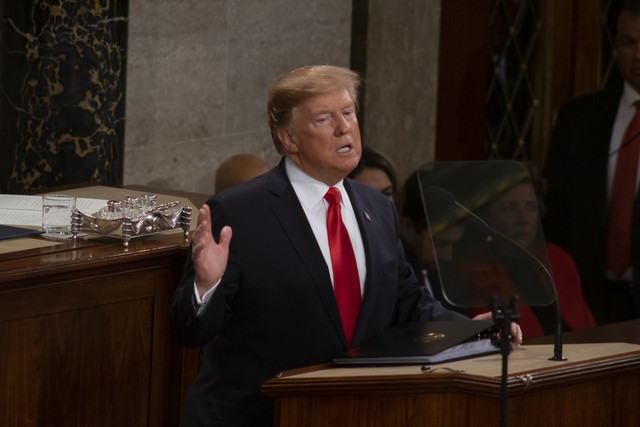WASHINGTON, March 23 (NNN-AGENCIES) — US President Donald Trump has not ordered the withdrawal of recently imposed sanctions against North Korea, administration officials say.
Trump caused confusion on Friday when he tweeted that “additional large-scale sanctions” would be withdrawn.
It was thought he was referring to the treasury’s move to blacklist two China-based shipping companies suspected of illegally trading with North Korea.
But officials later said he was referring to future sanctions.
Citing unnamed administration officials, US media reported that Trump was in fact cancelling measures that had yet to be announced and were scheduled for the coming days.
It had been thought that his tweet was referring to sanctions announced by the Treasury on Thursday. Trump sowed further confusion by referring to sanctions he said had been announced on Friday.
The confusion appeared to highlight differences within the Trump administration on how the US should approach relations with Pyongyang.
While the White House said the president felt the sanctions were unnecessary, National Security Adviser John Bolton said Thursday’s treasury sanctions were “important”.
In a tweet, he wrote that “the maritime industry must do more to stop North Korea’s illicit shipping practices”.
The US Treasury said it had acted because the companies had helped North Korea to evade international and US sanctions by engaging in ship-to-ship transfers with North Korean tankers or exporting North Korean coal.
Just hours after the announcement, North Korea withdrew from the inter-Korean liaison office. It was not clear if the two events were connected, and Pyongyang did not comment on the latest sanctions.
The liaison office, located in the North Korean border city of Kaesong, had allowed officials from North and South Korea to communicate on a regular basis for the first time since the Korean War.
The North Korean pullout followed a failed summit between President Trump and North Korea’s leader Kim Jong-un in Hanoi, Vietnam, last month. — NNN-AGENCIES






